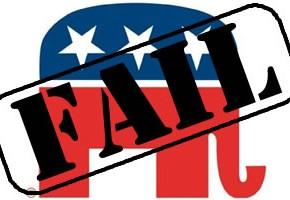 The big news out of Washington DC is that a budget deal was reached. It was Paul Ryan (Republican) and Patty Murray (Democrat) who supposedly came to the agreement.
The big news out of Washington DC is that a budget deal was reached. It was Paul Ryan (Republican) and Patty Murray (Democrat) who supposedly came to the agreement.
Murray is in the Senate, which the Democrats control by majority. Ryan is in the House, which the Republicans control by majority.
Paul Ryan is well known now because he was chosen by Mitt Romney as the vice-presidential candidate on the Republican ticket in 2012. While Ryan had a reputation of being a fiscal conservative by some, there should be no more illusions after looking at this budget deal.
Hold on to your wallet!
Whenever you see something that is referred to as a bi-partisan budget deal, then hold on to your wallet. Whether it’s a budget deal or any other kind of legislation, when it is supposedly bi-partisan, it usually means it is terrible legislation that is taking away your liberty.
While the Republican establishment will go along with this budget deal, some from the more fiscally conservative wing are criticizing it, as they should.
There is a great divide in the Republican Party and it isn’t going to be resolved any time soon. On one side is the establishment Republicans and on the other side are the Tea Party and more fiscally conservative Republicans.
House Speaker John Boehner is now going up against members of his own party. Boehner actually said, “If you’re for more deficit reduction, you’re for this agreement.”
The legislation supposedly reduces the deficit by a total of just over $20 billion over a period of ten years. Just to put this in context, we have been averaging trillion-dollar deficits over the last five years. Two billion dollars per year is a drop in the bucket.
A Dirty Trick
The politicians, and the media who like to cover for them, have this little trick. They like to talk about reducing the deficit. But they are trying to confuse people between deficits and debt.
The deficit is the debt over the course of a year. This gets added to the total debt. When they say that the deficit is being reduced, it just means that the accumulated debt over the course of a year is less than what was accumulated the year before.
If the deficit is $1 trillion in one year and then $900 billion in the following year, then the politicians will say that the deficit was reduced by $100 billion.
While this may be technically accurate, the debt still went up another $900 billion in that glorious year of cutting the deficit. So talking about the deficit and how much it decreases is really misleading.
I heard a snippet of Sean Hannity on the radio and he was touting the Mack Penny Plan, named after Connie Mack. The plan is to cut one penny every year for six years out of each dollar spent and we will supposedly have a balanced budget in something like 8 years.
Hannity compared it to a family budget. But a family that budgeted this way would be in major trouble.
If your family were running a deficit of $20,000 every year and continuing to accumulate massive debt, I don’t necessarily think a good solution would be to cut back 1% per year for six years, while hoping that you see a good increase in your income.
You will continue to accumulate massive debt over the next eight years and you will probably fall into bankruptcy before you ever reach any kind of a balanced budget.
Big Spending
If the Republicans in DC were really serious about getting the debt under control, then they would have simply refused to raise the debt ceiling. This would have instantly produced a balanced budget.
If this is too radical for the Republicans, they could have raised the debt ceiling by, let’s say, $25 billion per month, and this would at least limit the yearly deficit to “only” $300 billion per year.
Instead, we see the same old games coming out of Washington DC. It doesn’t really seem to matter which party is in control. Either way, we get big spending.
I don’t think the spending problem is going to be fixed until we hit a monetary crisis. When the Fed is faced with higher price inflation and has to stop buying government debt, then the federal government will have to sell its debt elsewhere.
We will likely see higher interest rates and the government will eventually be forced to scale back with less willing buyers of debt at low rates.
At some point, we will see a significant decrease in government spending. This will be a painful yet much needed time when it finally comes.


